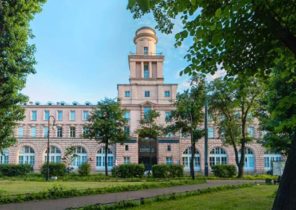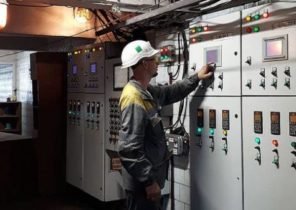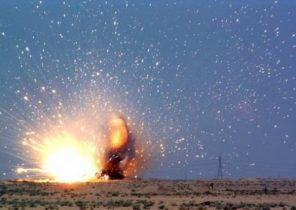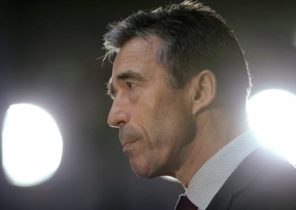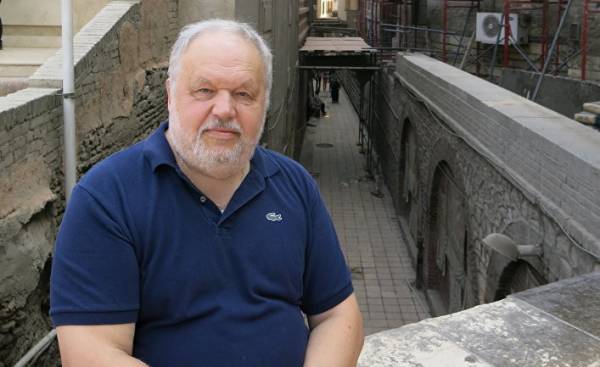
A number of countries and regions of Western Europe is trying to restore economic cooperation with Russia to bypass the existing anti-Russian sanctions. Most revealing from this point of view Austria and the Federal German state of Bavaria, where the course to overcome the sanctions conduct not only business representatives, but to the ruling political parties.
A manifestation of this political will was the arrival in St. Petersburg for international economic forum (SPIEF) Federal Chancellor of Austria Mr. Christian Kern and Prime Minister of Bavaria Horst Seehofer. Chancellor Kern said in an interview with Vladimir Putin that Austria is forced to comply with the anti-Russian sanctions because of its obligations to the EU, however, makes every effort in order to resolve an abnormal situation.
More actively in this direction operates the Bavarian Prime Minister Seehofer: his visit to Russia for the second time this year. His personal participation, he helps to establish a direct economic partnership between Bavaria and Russia, often ignoring policies of Berlin. In March of this year Seehofer visited Moscow with a delegation, which included more than one hundred business representatives and discussed in the Kremlin, the prospects for lifting sanctions on Russia.
A special relationship with Russia began in both Alpine regions established tradition. Bavaria has established a strong economic and cultural relations with Russia even when the previous Prime Minister Edmund Stoiber, who handed over the baton Seehofer. Bavaria always had their own, individual opinion in matters of internal and foreign policy, it sharply opposes the migration policy of Chancellor Angela Merkel. And against Russia Bavarian political establishment distanciruemsa from the strict “Euro-Atlantic” course Berlin.
Bayern became the first German land to establish economic partnership with Russia on a bilateral basis even in the 90-ies. Introduced in 2014, the anti-Russian sanctions seriously affected the Bavarian-Russian economic partnership, exports from Bavaria to Russia dropped in two years by 44%, from 4.6 to 2.6 billion euros. Only in 2016, this trend was reversed, the turnover began to grow. However, most of the representatives of the Bavarian business are optimistic, they believe that the worst is over.
With regard to the Austrian policy, it is a “special” Pro-Russian vector dates back to the mid 50-ies of the last century, when, with the assistance of the USSR the agreement was signed, which guaranteed the independence and neutrality of the Alpine Republic. Austria, unlike most countries of the EU, not join NATO, and with respect to all adopted during the Soviet era obligations, remains a reliable economic partner of Russia. In the European Union Austria together with Italy is the most active supporter of lifting anti-Russian sanctions.
German Handelsblatt says: “the Austrian Leadership has traditionally opposed tough sanctions regime against Russia. Despite the demands of the “hawks” in the EU, the Alpine Republic is always “stings on a brake” on the issue of sanctions. This position is easily explained: the Austrian economy is closely linked with Russia. This applies to major companies such as oil and gas group OMV, Strabag construction, petrochemical, Catoil, as well as banks Raiffеisen and Bank Austria. That’s why the Austrian business and Finance are so hard to resist the sanctions regime”.
One of the most important events of the forum was the signing of a contract worth nearly one billion euros between the Munich technology group Linde and the Republic of Tatarstan. The document was signed in presence of Russian President Putin and Prime Minister of Bavaria Seehofer, who personally followed the progress of the negotiations. We are talking about the construction of a petrochemical complex in Tatarstan with the aim of producing synthetic materials. The Bavarians managed to draw up a contract so that it did not fall under the sanctions regime from the EU. The President of the Bavarian chamber of Commerce Eberhard Sasse said in this regard that “Russia is the most promising and necessary market for Bavaria.”
At the St. Petersburg forum firms from Austria was signed a number of important documents in oil and gas industry. Gazprom and Austrian oil and gas group OMV signed a framework agreement on joint participation in LNG projects in the Black sea. Will also formulate projects for development of gas infrastructure in Austria to increase Russian gas transit to the countries of Eastern and southern Europe. In addition, OMV and Gazprom signed a framework agreement on long-term cooperation, including on oil fields in Iran.
Observers say that, in spite of immediately implemented by the European Commission obstacles, Europe buys Russian gas in increasing quantities, while the main partners of Gazprom are companies from Austria and Germany. As stated by the OMV head Rainer Seele, the Commission act contrary to common sense, braking joint energy projects. His position was supported by the head of the German company Wintershall Mario Mehren. And arrived in St. Petersburg the former German Chancellor Gerhard schröder explicitly stated that the opponents of Russia in the energy sector are playing a dangerous game with unpredictable outcome.
The St. Petersburg forum was successful for firms not only Bavaria, but also in other lands of Germany. Thus, the Knauf group signed on the sidelines of SPIEF agreement on the construction of the cardboard factory in Leningrad region. Siemens AG has signed an agreement with KAMAZ for production automation and production of electric vehicles. In addition, Siemens AG and Gazprom have agreed on the development projects of hydrocarbons on the continental shelf of the Russian Federation and with Russian Railways, the German company agreed to create trains “Swallow” of the new generation. In addition, in St. Petersburg, the RSPP and the Eastern Committee of German economy signed an important agreement on a joint project with the goal of digitalization of the Russian economy.
Optimistic representative of the German delegation summed up the German Ambassador to Russia rüdiger von Fritsch: “together we can overcome all obstacles”. Observers note in this connection that only in the first months of the current year the trade turnover between Russia and Germany increased by 43%, the trend for the next period is positive. Sums up the situation of the Austrian Die Presse: “it is obvious that Russia and Putin once again take to the European stage.
After two years of recession, the Russian economy begins to grow, and the master of the Kremlin creates new incentives for investment. He plays into the hands of the fact that the awkward actions of the American President trump distract attention from Russia. Putin admits that sanctions are preventing economic cooperation of Russia and Europe. The parties understand that prior to the resolution of the conflict in the East of Ukraine to remove them would be impossible, and therefore looking for ways of interaction to bypass the sanctions.”
